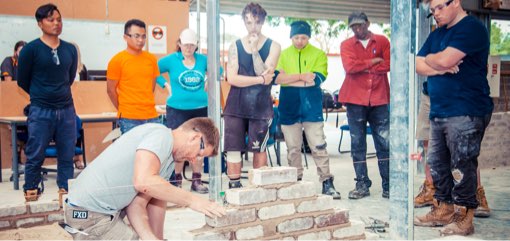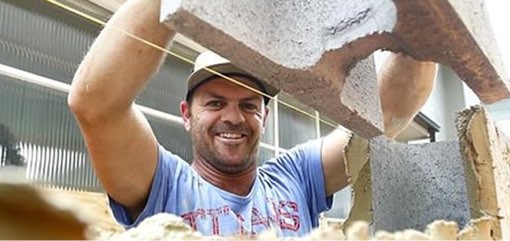The Next Generation Career Option in Bricklaying is Available Now
To lay bricks is a respected occupation that is crucial to the building industry. Bricks are fundamental, which means that working with them may be very varied, interesting, and difficult. Discovering the challenges and benefits of being a bricklayer is facilitated by learning about the profession itself. If you're interested in becoming a bricklayer, you may do so by following the instructions below.
Graduate from High School
To get Bricklayer apprenticeship, you need first finish your education, whether that's at the secondary school or college level. Even if you believe that you can make it as a bricklayer without a formal education, you should keep in mind that you will almost certainly need some kind of training or education to be successful. In the field of mathematics, for instance, it is crucial to be precise. The number of bricks required building a wall, plus the amount that will need to be chipped down to prevent overhanging, must be precisely determined.
Join an Internship Program
Apprenticeship programs are highly recommended for anybody looking to break into a new field. If you're interested in becoming a bricklayer, an apprenticeship is a great way to learn the trade and get a feel for what it's like to work in the field on a daily basis. While you're learning the ropes on the job, you may evaluate whether it's a good fit for you.
Discovering an apprenticeship might also help you expand your professional network. Demonstrating your value as an apprentice will help you develop solid professional connections with everyone from your employer to your on-site partners and suppliers. If you do well during your apprenticeship, you may be given a position with the firm that first hired you or with one of their vendors or competitors.
Get More Education
Courses and certificates offered by third-parties might help anyone interested in entering the bricklaying industry. Most people get their certifications by taking a course or serving an apprenticeship, but if you're getting into the profession because you desire a different career path, you may want to get your credentials while you're still employed.
If you're switching careers, becoming certified is a huge signal that you're serious about doing the work required of you. Although a non-related work history may raise red flags with potential employers, earning credentials in the field in which you want to work shows initiative and demonstrates that you are committed to making a career change.
Get the Application Process Underway
Having finished Trade apprenticeships makes this easier, since many bricklaying jobs need previous work experience. Inquiring about a possible position with your former employer as an apprentice may be the best course of action to take. You might also try looking for employment opportunities online. If you can't discover any, look into planned construction in your region and get in touch with the relevant organization.
Conclusion
Widen your search area if you're willing to commute or relocate. Someone may be hiring, and if you're qualified by past work or credentials, you may be invited in for an interview or given a chance to try out for the position. The application procedure, like any other, requires tenacity. One day, someone will notice all the applications you sent out and call you for an interview because you showed up prepared and eager to work.





Comments
Post a Comment